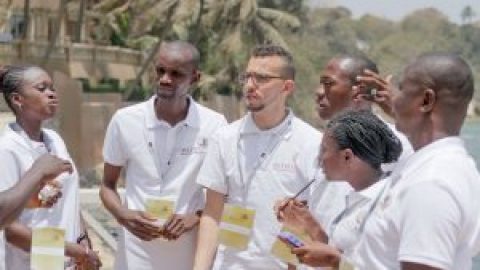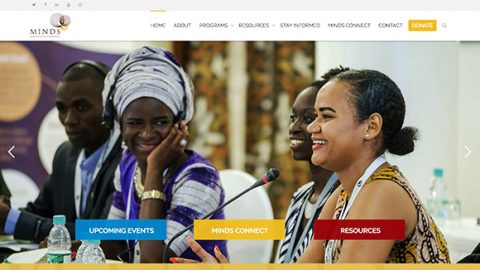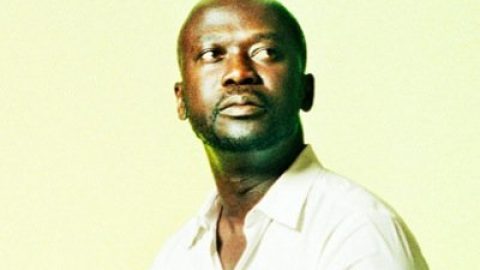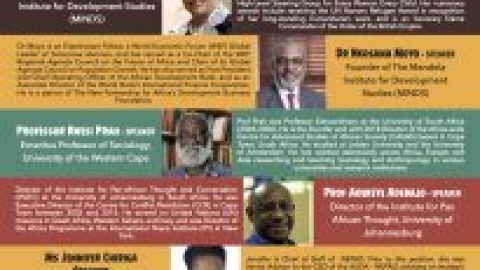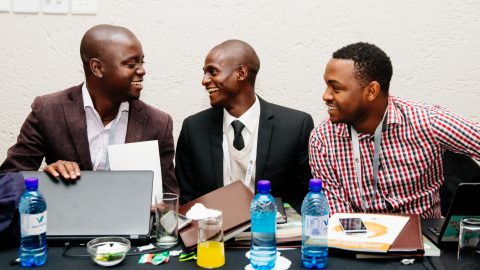There is no magic formula to create jobs in Africa but conditions such as a vibrant private sector driven by free trade could be key to generating economic growth.
This is according to African Union Development Agency-NEPAD Head of Human Capital and Institutions Development Division Ms Fati N’zi-Hassane.
“For the new generations brought up by new technology in a very unique social-economic environment, it often takes a young person to understand the needs of the same market and create the relevant solutions,” she said.
Ms N’zi-Hassane was quoted as a panellist at a Mandela Institute for Development Studies and Southern Africa Youth Forum (SAYof-SADC) information session on the African Continental Free Trade Agreement (AfCFTA) held on March 25.
Speakers included a range of thought leaders from across Africa.
The full list can be accessed below.
Trade Law Centre describes AfCFTA as the “blueprint” to attain inclusive and sustainable growth on the continent for the next 50 years by boosting trade on the continent. The centre reported that in early February 36 of the 55 African states had both signed and deposited their instruments of AfCFTA ratification.
“On a larger scale, when you look at the benefits of the agreement […] you have an enlarged market size and there will be enhanced trade,” said Senior Advisor to the Secretary-General at the AfCFTA Secretariat Peter Joy Sewornoo,
However, for some, entrepreneurship is far more important than just talking about trade agreements.
“A successful entrepreneur is someone that is able to find a solution for a specific problem,” said N’zi-Hassane.
As the youngest continent in the world where between 10 and 12 million youth in Africa vie for the 3 million jobs available, unemployment is a serious problem in Africa.
But it is not all “doom and gloom”, said African Development Bank Regional Integration Coordinator Bokang Mokati-Sunkutu.
“AfCFTA has enormous potential to create employment [through entrepreneurship],” she said.
As a young entrepreneur who sources organic products continentally, Norma’s Touch Organic Treatments & Lifestyle products founder Nomazulu Mzizi; said she often gets entangled in red tape when bringing African products back to her home in South Africa.
Apart from high import tariffs customs, officials scrutinise her products which can slow delivery.
“[Chebe] powder is very controversial when bringing it in [to South Africa], they test it for marijuana,” said Mzizi, adding that strict protocols and laws intended to protect citizens can have a chilling effect on knowledge-sharing.
Dr Adzogenu agreed, saying the continent is plagued by silos that can stymie local business. He pointed out products like Moringa are more highly valued outside of Africa.
“Part of how AfCFTA is going to work is when the youth begin to add value and create an ecosystem that enables people to see value in being part of what we’re creating,” Dr Adzogenu suggested.
Bringing real value to the people
African Union Development Agency-NEPAD Director of Knowledge Management and Programme Evaluation Martin Bwalya said the continent is in a prime position to develop as it is home to 60% of the world’s arable land and has vast reserves of strategic minerals.
“The AfCFTA is about how we convert potential to real value for our people,” he said.
However, in spite of the continent’s rich potential, the world’s five poorest countries are also all from Sub-Saharan Africa, according to Focus Economics.
MINDS Founder Dr Nkosana Moyo called this a contradiction that must be dealt with.
“Our challenge is how we take raw materials and convert them into something that reflects in the quality of life of the citizens,” she said.
While AfCFTA provides an answer on how to create value for African people, Dr Moyo believes the agreement is only a framework and that the reality is created by people.
Bwayla agreed and noted that the people of the continent play a crucial role in developing Africa.
“The citizenry’s responsibility and action is a critical part of successful implementation and delivery on development,” Bwayla said.
Find more information about AfCFTA here.
*Speakers were MINDS Founder Dr Nkosana Moyo, Norma’s Touch Organic Treatments & Lifestyle products Founder Ms Nomazulu Mzizi, AfroChampions Initiative Co-Founder Dr Edem Adzogenu, African Union Development Agency-NEPAD Director of Knowledge Management and Programme Evaluation Mr Martin Bwalya, African Union Development Agency-NEPAD Head of Human Capital and Institutions Development Division Ms Fati N’zi-Hassane, African Development Bank Regional Integration Coordinator Ms Bokang Mokati-Sunkutu, and Mr Peter Joy Sewornoo, Senior Advisor to the Secretary-General at the AfCFTA Secretariat. MINDS advisory board member Ms Sheila Khama moderated the discussion.



